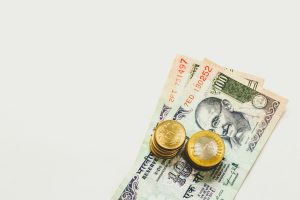Forex, also known as foreign exchange, is the largest financial market in the world. It is a decentralized market where currencies are traded 24 hours a day, five days a week. Forex trading can be a lucrative way to make money, but it also involves risk. Before getting involved in forex trading, it is important to understand the costs involved.
The cost of joining forex can vary depending on several factors. One of the primary costs is the cost of opening an account with a forex broker. Forex brokers act as intermediaries between traders and the forex market, providing traders with access to the market and the tools they need to trade. The cost of opening an account with a forex broker varies depending on the broker, with some brokers requiring a minimum deposit of just a few hundred dollars, while others may require a minimum deposit of several thousand dollars.
In addition to the cost of opening an account, forex trading involves other costs. One of these costs is the spread, which is the difference between the bid price and the ask price of a currency pair. The spread is the way that forex brokers make money, and it can vary depending on the broker and the currency pair being traded. The spread can range from a few pips to several hundred pips, depending on the broker and the currency pair.
Another cost associated with forex trading is the rollover fee. The rollover fee is the cost of holding a position overnight, and it is based on the interest rate differential between the two currencies in the currency pair being traded. If a trader is long a currency with a higher interest rate than the currency they are short, they will receive a rollover credit. If a trader is short a currency with a higher interest rate than the currency they are long, they will be charged a rollover fee.
Forex trading also involves other costs, such as commissions, swap fees, and slippage. Commissions are fees charged by the broker for executing trades, while swap fees are the cost of rolling over a position from one day to the next. Slippage is the difference between the price at which a trader enters a trade and the price at which the trade is executed.
Overall, the cost of joining forex can vary depending on several factors. The cost of opening an account with a forex broker can range from a few hundred dollars to several thousand dollars, while the spread, rollover fee, commissions, swap fees, and slippage can add to the overall cost of trading. It is important for traders to understand these costs and to factor them into their trading plan in order to manage risk and maximize profitability.
In conclusion, while forex trading can be a lucrative way to make money, it also involves risk and costs. The cost of joining forex can vary depending on several factors, including the cost of opening an account with a forex broker, the spread, rollover fee, commissions, swap fees, and slippage. Traders should carefully consider these costs and factor them into their trading plan in order to manage risk and maximize profitability.






